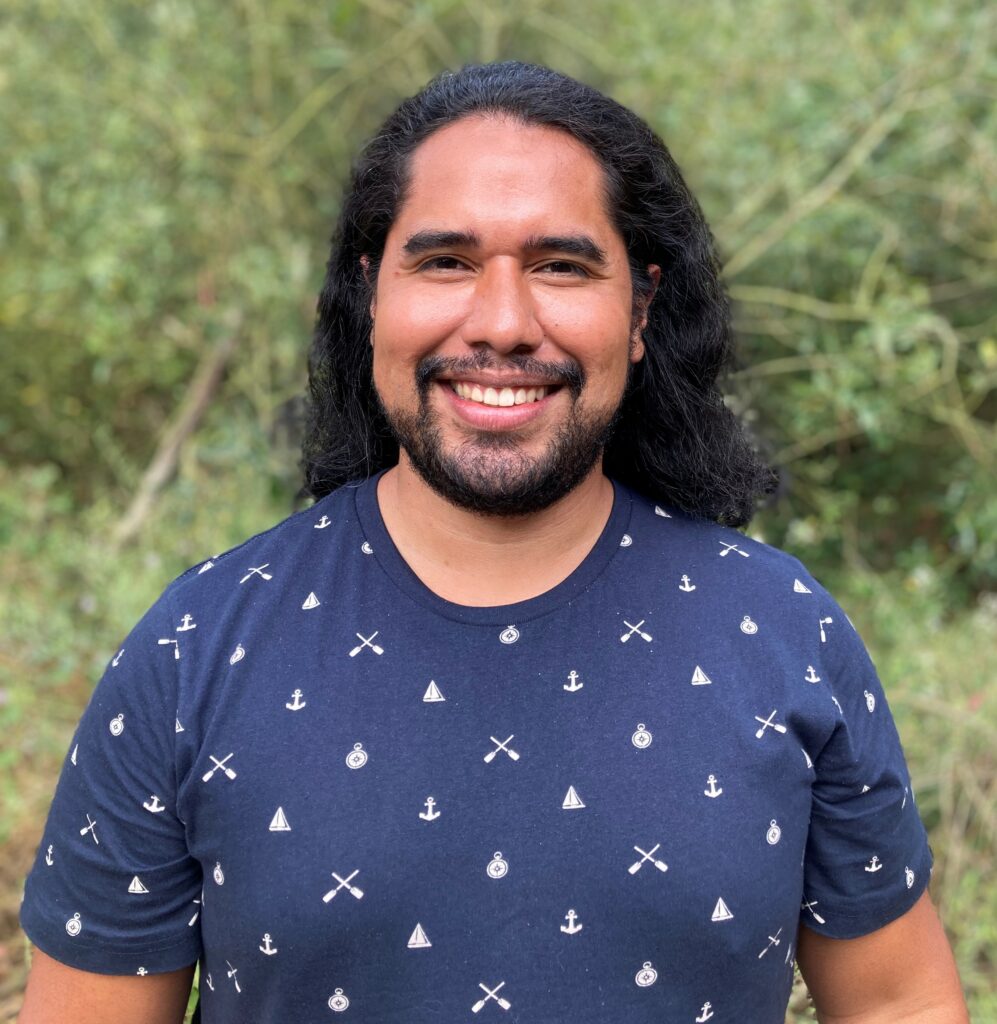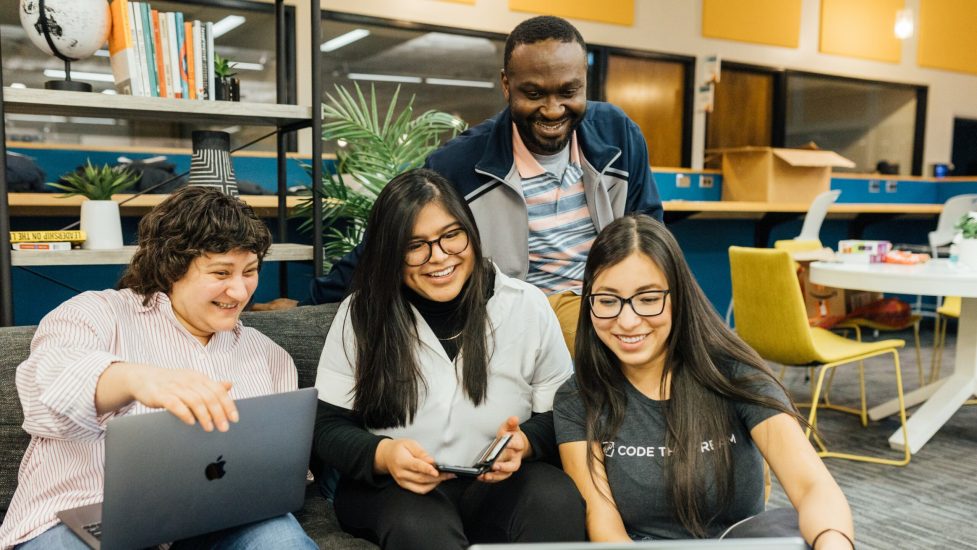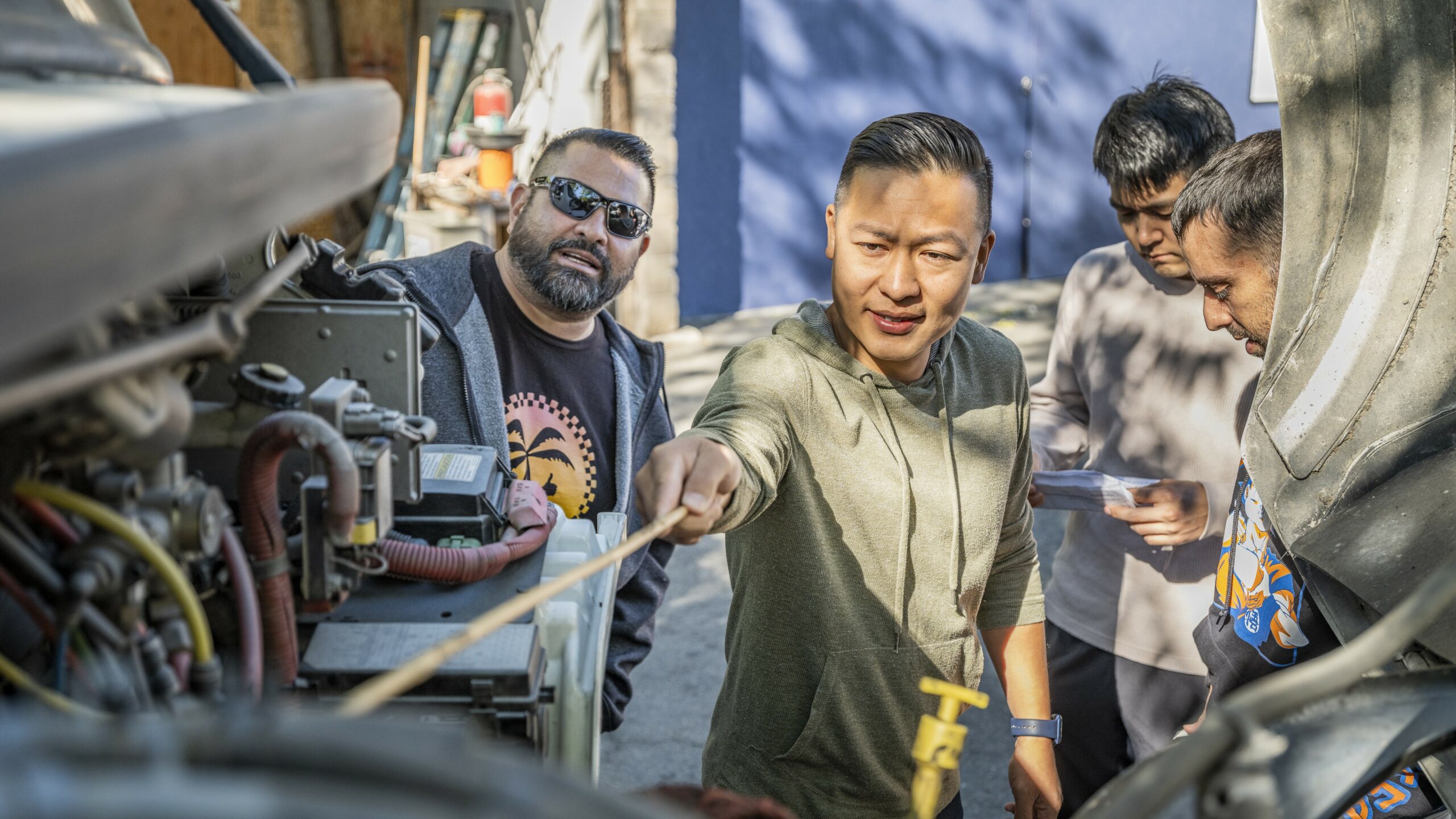Code the Dream is a nonprofit that provides tech training to people who are low income including immigrants, refugees, and people of color.

The nine-month program is designed to allow flexibility for students. “Education needs to fit into their schedule and not require them to drop everything to fit into our schedule,” says Daisy Magnus-Aryitey, co-executive director. She explains students are given the curriculum ahead of time, work at their own pace each week, and meet with mentors to review the material.
Students can also gain hands-on opportunities through full-time, in-house apprenticeships. With those opportunities, comes purpose. Magnus-Aryitey, who moved as a child from Ghana to the U.S., says, “We want to build technology that benefits our community.” To that end, Code the Dream offers apprenticeships working with senior developers and nonprofits that serve marginalized communities.
Building ‘community-responsive technology’
Suma, a Portland, Oregon-based nonprofit, whose stated mission is “building an inclusive technology future with low-income people, people of color and other frontline communities.” The organization’s Alan Hipólito says, “The lack of diversity in the tech sector too often means that really important and community-responsive technology solutions are never developed.”
Working with a Code the Dream apprentice, Suma is building a web-based platform to connect low-income communities with available discount programs at food, transportation, and utility vendors. Hipólito says the goal is to overcome enrollment barriers including cost, privacy concerns, and payment methods.
He notes, “Folks will be able to access with just one bar of connectivity.”
Regarding the Code the Dream apprentice, Hipólito says the goal is to have that person fill the organization’s role of chief technology officer. “We are trying to not just build the platform but build a pathway for a community member to join us on staff in the technology role.”
Access to Opportunity
Code the Dream’s goal is to provide training for jobs in a field that is expected to grow 22% between 2020 and 2030 with a median salary of $110,00, according to the Bureau of Labor Statistics. The organization says over 90% of its apprentices find well-paid tech careers. Based in Durham, North Carolina, Code the Dream aims to serve students in all 50 states by 2025.
The BLS notes a bachelor’s degree as the usual requirement for software developer jobs. But, Magnus-Aryitey says most Code the Dreams participants do not have a four-year degree and the program does not require a high school diploma. To qualify, applicants must be at least 18 years of age and complete an online coding tutorial before interviewing for the program.

“It changed my life a lot,” says Johan Andres Ochoa Quiroz, an immigrant from Colombia who came to the United States three years ago. Living in San Francisco, he was delivering food when he attended the Code the Dream program.
Ochoa Quiroz is now a software engineer at Airbnb. “Before I didn’t have a stable job. I didn’t even know what I was going to do with my life,” he says.
“When you go to a new country, getting a specialized job takes a lot of time. You probably have to go to college or something. I already went to college. Right now, I feel like I can have a comfortable life.”
Says Magnus-Aryitey, ““It is a dream to be in this position to see other people have their dreams realized.”
Knowing Firsthand What Opportunity Can Provide
“Because our folks are coming from marginalized backgrounds, they have insights that not everybody else does,” says Magnus-Aryitey.
“They can connect their technical knowledge, technical acumen with lived experiences and identify needs and develop solutions that I think are missed by the tech ecosystem as a whole,” she adds.
In 2015, Magnus- Aryitey was a stay-at-home mom – hitting roadblocks as she tried to get back into the workforce. “At that point, I had never considered software development as a job. I had never known anybody who was a software developer. It was kind of out of the realm of possibilities for me,” explains Magnus-Aryitey.
She read an article about software development being a great career for women and moms because of flexibility and well-paying salaries. “I said, ‘I might as well give it a try,’” she recalls. “What have I got to lose, especially with this free program?”
She attended the cost-free Code the Dream program in Durham and landed a full-time job as a software developer at Duke University within a year.
When an opportunity opened at Code the Dream, Magnus-Aryitey returned. “I loved working at Duke, but I was always a volunteer at Code the Dream. I was on the Board for a bit as well,” she says.
“I was always interested in how we can expand Code the Dream so that more people could have an opportunity like I did,” says Magnus-Aryitey.











